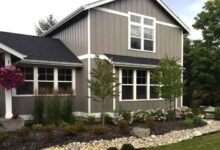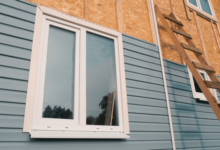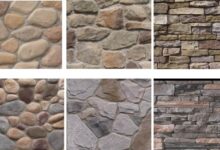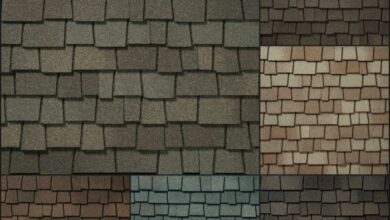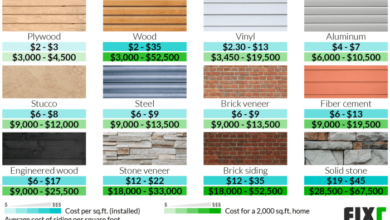Wholesale Siding Near Me Find the Best Deals
Wholesale siding near me? Finding the right supplier can save you a bundle on your next home improvement project. Whether you’re a seasoned contractor or a DIY enthusiast tackling a refresh, the quest for affordable, high-quality siding begins with understanding your needs and researching local options. This guide navigates the process, from identifying your ideal siding type (vinyl, fiber cement, wood, and more) to comparing pricing and services from various suppliers.
We’ll delve into the crucial factors influencing your decision—beyond just the price tag—including warranty options, delivery services, and even the aesthetic impact of different siding styles and colors on your home’s curb appeal. Armed with this knowledge, you’ll be empowered to make informed choices and transform your home’s exterior without breaking the bank.
Understanding Customer Needs for Wholesale Siding
Finding the right siding for a project, whether it’s a single home renovation or a large-scale construction undertaking, requires careful consideration. The customer searching for “wholesale siding near me” is typically driven by a need for cost-effectiveness and a desire for high-quality materials, often in bulk. This search indicates a level of project sophistication and a proactive approach to sourcing materials.
Typical Customer Profile
The typical customer searching for wholesale siding is often a contractor, builder, or property developer. They are likely involved in multiple projects simultaneously and prioritize efficiency and value. Smaller businesses, such as home improvement companies or independent contractors, also frequently source siding wholesale to maintain competitive pricing. While some homeowners may also utilize wholesale options, their searches are less common due to the higher order minimums and logistical considerations often involved. They understand the advantages of buying in bulk and are comfortable navigating the complexities of wholesale transactions.
Key Motivations for Wholesale Siding Purchases
Three primary motivations drive the search for “wholesale siding near me.” First, cost savings are paramount. Wholesale pricing inherently offers significant discounts compared to retail, a crucial factor for projects with substantial siding needs. Second, access to bulk materials is essential for timely project completion. Wholesale suppliers often maintain large inventories, ensuring that projects aren’t delayed due to material shortages. Third, supplier relationships become critical. Building a relationship with a reliable wholesale supplier can provide consistent access to quality materials and potentially preferential pricing over time. This is especially beneficial for ongoing projects or businesses requiring regular siding supplies.
Types of Siding Materials
Customers searching for wholesale siding may be interested in a range of materials, each with its own advantages and disadvantages. Vinyl siding is a popular choice due to its affordability, low maintenance, and wide range of colors and styles. However, it’s less durable than other options and may not be suitable for all climates. Fiber cement siding offers superior durability and fire resistance compared to vinyl, but it’s more expensive and requires more professional installation. Finally, wood siding, while aesthetically pleasing and offering a natural look, necessitates higher maintenance and is susceptible to damage from moisture and insects. The choice often depends on the project’s budget, aesthetic goals, and the expected lifespan of the siding.
Factors Influencing Siding Material and Supplier Choice
Several factors influence a customer’s final decision. Price is always a major consideration, especially in wholesale purchasing where bulk discounts can significantly impact overall project costs. Durability and longevity are also crucial, as customers want siding that can withstand the elements and require minimal maintenance. Aesthetic appeal is vital, with customers seeking siding that complements the overall design of the building. Finally, the reputation and reliability of the supplier are key. Customers want assurance of timely delivery, consistent quality, and responsive customer service. A supplier’s track record and customer reviews play a significant role in the decision-making process. For example, a contractor working on a high-profile project might prioritize a supplier with a proven history of delivering high-quality materials on time, even if the price is slightly higher.
Local Market Research: Wholesale Siding Near Me
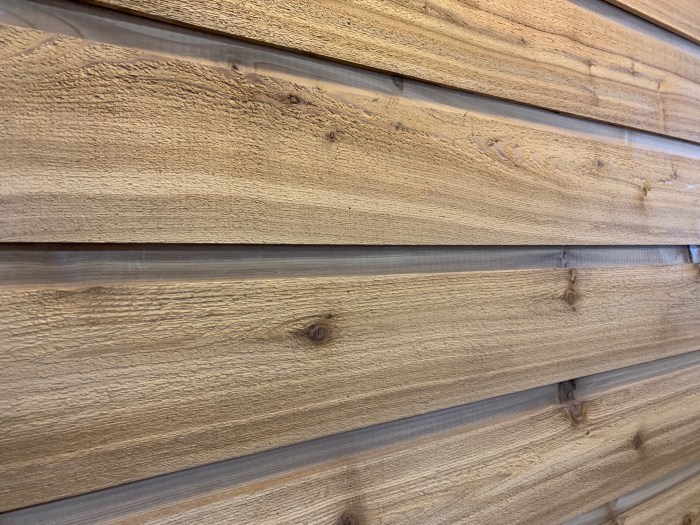
Finding the right wholesale siding suppliers is crucial for maximizing your profit margins and ensuring a consistent supply of high-quality materials. Thorough local market research allows you to identify reliable sources, compare pricing, and negotiate favorable terms. This process, while requiring upfront effort, pays significant dividends in the long run.
Identifying Local Wholesale Siding Suppliers
Locating suitable suppliers requires a multi-pronged approach combining online research with local networking. This section details effective strategies for identifying potential partners and evaluating their suitability.
| Supplier Name | Address | Contact Information | Types of Siding Offered |
|---|---|---|---|
| Example Supplier A | 123 Main Street, Anytown, CA 91234 | (555) 123-4567, [email protected] | Vinyl, Fiber Cement, Wood |
| Example Supplier B | 456 Oak Avenue, Anytown, CA 91234 | (555) 987-6543, [email protected] | Vinyl, Aluminum, Steel |
| Example Supplier C | 789 Pine Lane, Anytown, CA 91234 | (555) 555-5555, [email protected] | Fiber Cement, Engineered Wood |
Note: The above table provides example data. You should replace this with actual data gathered through your research.
Online Directories and Resources
Several online platforms facilitate the search for wholesale siding suppliers. These resources offer a convenient starting point for your research, enabling you to quickly identify potential suppliers in your area.
Leveraging these resources effectively requires targeted searches and careful review of supplier profiles. Pay attention to reviews and ratings to gauge the reputation and reliability of potential suppliers.
Examples of online directories and resources include (but are not limited to):
- Online business directories (e.g., Yelp, Google My Business)
- Industry-specific websites and forums
- Manufacturer websites (often list authorized distributors)
- Wholesale directories (some specialize in building materials)
Verifying Supplier Legitimacy and Reliability
Before committing to a supplier, thorough due diligence is essential. This involves verifying their licensing, insurance, and reputation to mitigate potential risks.
A robust verification process involves several steps:
- Check for business licenses and permits: Confirm the supplier is legally operating in your area.
- Verify insurance coverage: Ensure they have adequate liability and workers’ compensation insurance.
- Review online reviews and testimonials: Look for patterns in customer feedback, both positive and negative.
- Check Better Business Bureau (BBB) ratings: The BBB provides information on business complaints and resolutions.
- Request references: Contact previous clients to inquire about their experiences.
- Examine their financial stability: Look for signs of consistent operations and financial health.
Local vs. National Suppliers: Benefits and Drawbacks
The choice between local and national suppliers involves weighing several factors. Each option presents unique advantages and disadvantages that must be carefully considered.
Working with local suppliers often offers benefits such as faster delivery times, easier communication, and stronger relationships. However, they may have limited product variety and potentially higher prices compared to national suppliers. National suppliers, on the other hand, may offer broader selection and potentially lower prices due to economies of scale, but may involve longer lead times and less personalized service.
Comparing Pricing and Services of Wholesale Siding Suppliers
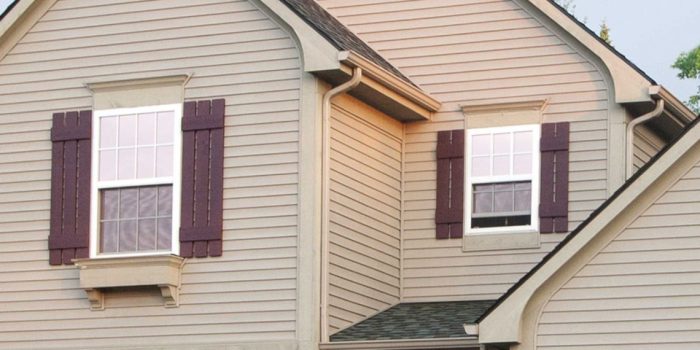
Choosing the right wholesale siding supplier involves more than just finding the lowest price. A comprehensive comparison of pricing structures and the services offered is crucial for securing the best value and ensuring a smooth project. Understanding these factors will empower you to make informed decisions and avoid potential pitfalls.
Pricing Structures of Wholesale Siding Suppliers
Wholesale siding suppliers typically employ several pricing structures. The most common methods include pricing per square foot, which is often used for vinyl and fiber cement siding, and pricing per bundle, frequently used for wood siding and some types of composite materials. Some suppliers might also offer tiered pricing based on order volume, providing discounts for larger purchases. For example, a supplier might charge $2.50 per square foot for vinyl siding in smaller orders, but reduce the price to $2.25 per square foot for orders exceeding 500 square feet. Similarly, a bundle of cedar wood siding might cost $150 for smaller orders, but $135 per bundle for larger orders. It’s essential to request detailed pricing breakdowns, clarifying any additional charges for delivery, handling, or specific finishes.
Services Offered Beyond Material Provision
Beyond simply supplying the siding materials, many wholesale siding suppliers offer a range of supplementary services designed to streamline the installation process. These can include material delivery, often with options for specific delivery windows and unloading assistance. Some suppliers also provide cutting services, pre-cutting siding to precise lengths based on project specifications, saving contractors valuable time and labor. Others might offer design consultations or technical support, assisting with material selection and installation techniques. Finally, some suppliers may even provide waste removal services, helping to manage the debris generated during the siding installation.
Factors Beyond Price to Consider When Selecting a Supplier
While price is a significant factor, several other elements should be carefully considered when choosing a wholesale siding supplier. Reliable and timely delivery is paramount, avoiding project delays. Efficient and responsive customer support is also essential, ensuring quick resolution of any issues or questions that may arise. The supplier’s reputation and experience within the industry should be thoroughly investigated, checking for reviews and testimonials from previous clients. Furthermore, the supplier’s inventory levels and availability of specific siding types and colors should be confirmed to avoid delays caused by stockouts. Finally, the supplier’s location relative to your project site can significantly impact delivery costs and lead times.
Warranty Options Offered by Siding Suppliers
Warranty coverage varies significantly between siding suppliers and the types of siding offered. Some suppliers provide limited warranties covering manufacturing defects, typically for a period of 10-25 years. Others offer more comprehensive warranties that may extend to cover labor costs associated with repairs or replacements under certain conditions. The specifics of the warranty should be carefully reviewed, including any exclusions or limitations. For example, one supplier might offer a 20-year warranty against material defects but exclude damage caused by improper installation. Another might offer a 15-year warranty covering both material and labor, but with certain stipulations on the use of approved installers. It’s crucial to compare warranty terms and conditions meticulously to determine the best overall protection for your investment.
Visualizing Siding Options for Customers
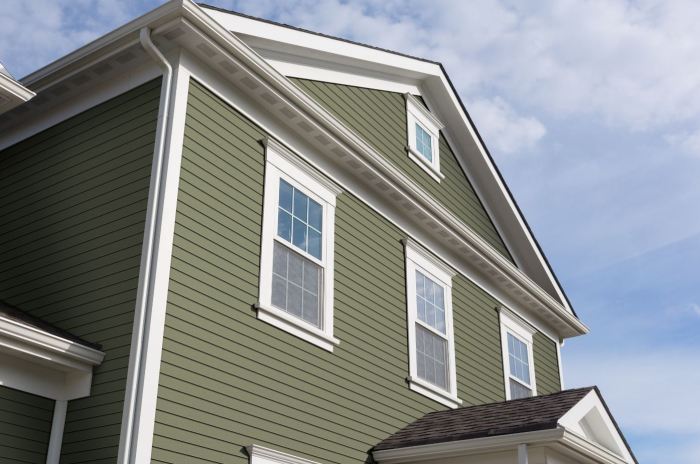
Choosing the right siding can dramatically impact a home’s aesthetic appeal and overall value. Understanding different siding styles, colors, and the process of calculating project costs is crucial for both homeowners and contractors. This section provides a visual guide to help you effectively present siding options to your customers.
Siding Styles and Architectural Suitability, Wholesale siding near me
Different siding styles complement various architectural designs. The right choice enhances the home’s character and curb appeal. Consider these popular options:
- Clapboard Siding: This classic style, characterized by horizontal overlapping boards, suits traditional, colonial, and craftsman-style homes. Its versatility allows for a range of colors and finishes, blending seamlessly with established architectural features.
- Vinyl Siding: Known for its durability and low maintenance, vinyl siding is adaptable to various architectural styles, from modern to ranch. Its smooth surface and wide array of colors make it a popular choice for homeowners seeking a cost-effective solution.
- Brick Siding: Offering a timeless and sophisticated look, brick siding is particularly well-suited for homes with a Tudor, Victorian, or farmhouse aesthetic. Its inherent texture and durability add a sense of permanence and elegance.
Siding Colors and Their Impact on Curb Appeal
Color selection significantly influences a home’s visual impact. Consider these examples:
- Warm Gray: A versatile neutral, warm gray reflects light subtly, creating a calming and sophisticated atmosphere. It works well with various architectural styles and landscaping, offering a timeless appeal.
- Deep Blue: A bold choice, deep blue adds a dramatic and modern touch. Its dark hue absorbs more light, creating a sense of depth and contrast. It’s particularly striking on homes with clean lines and modern architectural features.
- Creamy White: A classic choice, creamy white reflects light effectively, making a home appear brighter and larger. Its airy feel enhances the home’s openness and complements both traditional and contemporary designs. It pairs beautifully with dark trim for added contrast.
Determining Siding Quantity for a Project
Accurate measurement is crucial to avoid material shortages or waste. Follow these steps:
- Measure the perimeter: Measure the total length of all exterior walls that require siding.
- Calculate the wall area: Multiply the perimeter by the wall height. Subtract the area of windows and doors.
- Account for overlaps and waste: Add 5-10% to the total area to account for overlaps and material waste during installation.
- Consider siding dimensions: Divide the total area by the area of a single siding panel to determine the number of panels needed.
Calculating the Total Cost of a Siding Project
Estimating the total cost involves considering several factors:
- Material Costs: This includes the cost of siding, trim, fasteners, and underlayment. Prices vary based on material type, quantity, and supplier.
- Labor Costs: Labor costs depend on the project’s size, complexity, and the contractor’s hourly rate. Obtain multiple quotes for accurate cost estimations.
- Permit Costs: Building permits are typically required for exterior renovations. Check with your local authority for specific permit fees and requirements.
Total Project Cost = Material Costs + Labor Costs + Permit Costs
For example, a 1500 sq ft home requiring vinyl siding might have material costs around $5000, labor costs around $7000, and permit costs around $500. This results in a total estimated cost of $12,500. This is just an example; actual costs will vary significantly depending on the factors mentioned above.
Ultimately, securing wholesale siding near you is about more than just finding the cheapest option. It’s about finding a reliable supplier who offers quality materials, excellent customer service, and competitive pricing. By carefully considering the factors Artikeld in this guide—from material selection and supplier verification to pricing structures and warranty options—you can confidently embark on your siding project, knowing you’ve made the best possible choice for your home and budget. Remember, the right siding can dramatically enhance your home’s value and curb appeal for years to come.
Expert Answers
What’s the average lifespan of different siding types?
Vinyl siding typically lasts 20-30 years, fiber cement 50 years or more, and wood siding’s lifespan varies greatly depending on maintenance (20-50 years).
Do I need permits for a siding replacement project?
Permits are usually required for significant exterior renovations. Check with your local building department for specific regulations.
Can I get financing for wholesale siding purchases?
Some suppliers may offer financing options, or you can explore home improvement loans through banks or credit unions. Always compare interest rates and terms.
What are common issues to watch out for when dealing with siding suppliers?
Beware of extremely low prices (potentially indicating inferior quality), unclear warranty information, and poor customer reviews. Always get everything in writing.
How much should I expect to pay for professional installation?
Installation costs vary widely based on location, project size, and siding type. Get multiple quotes from reputable installers before committing.

